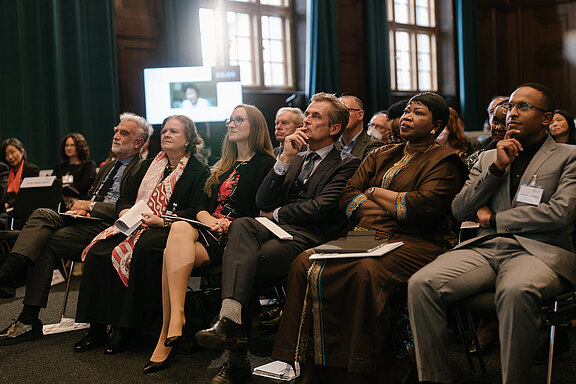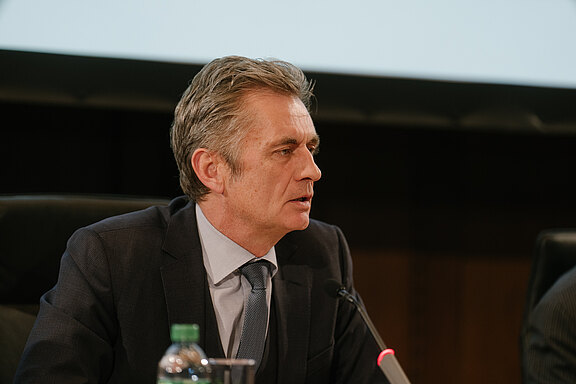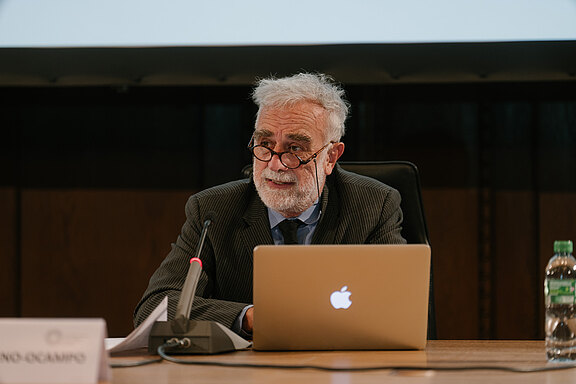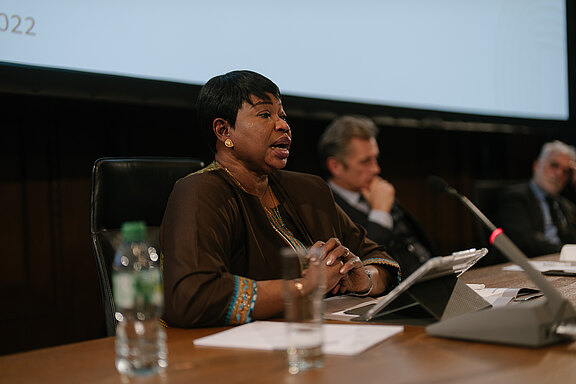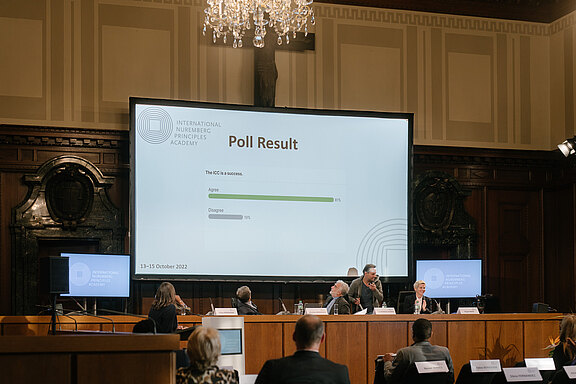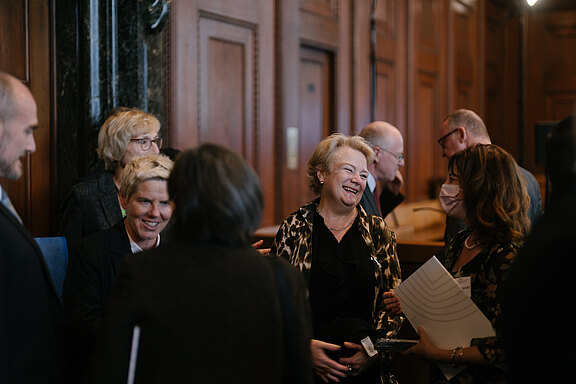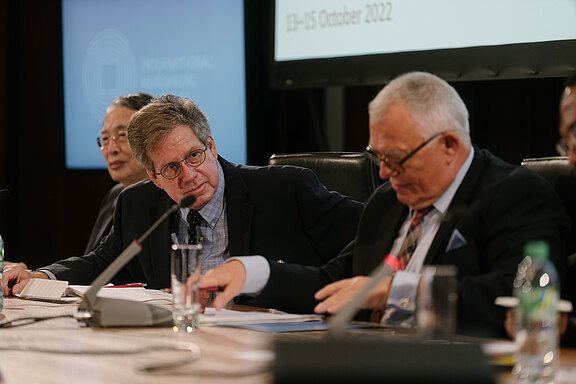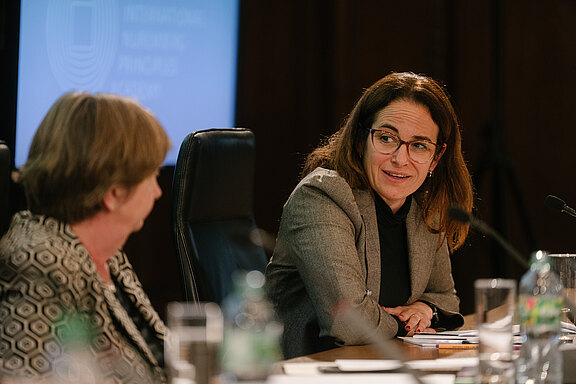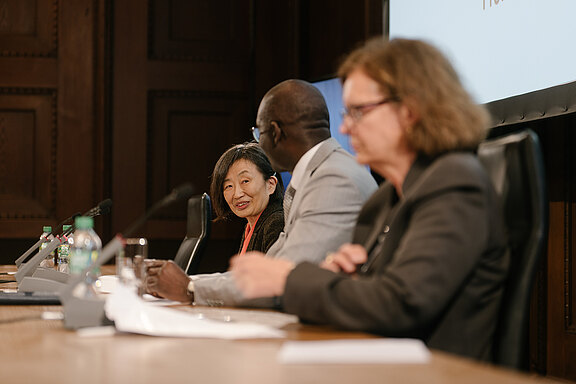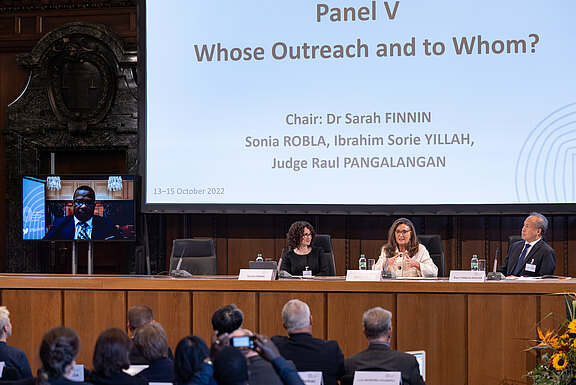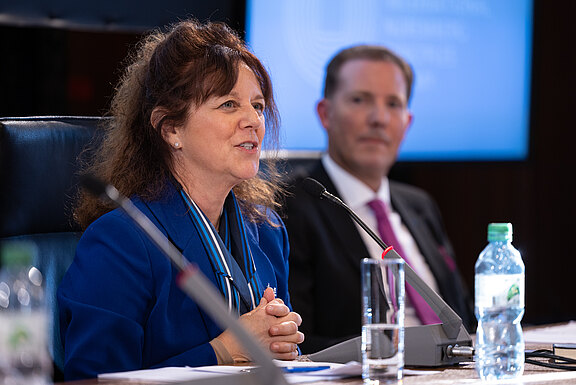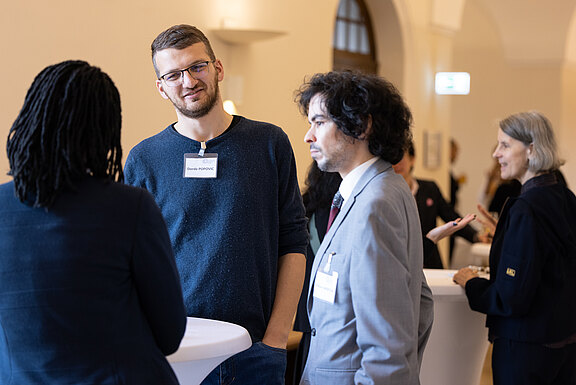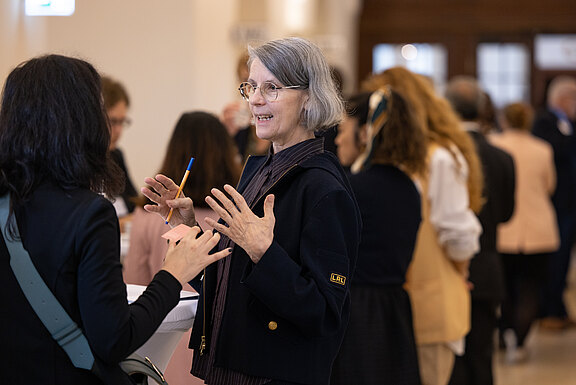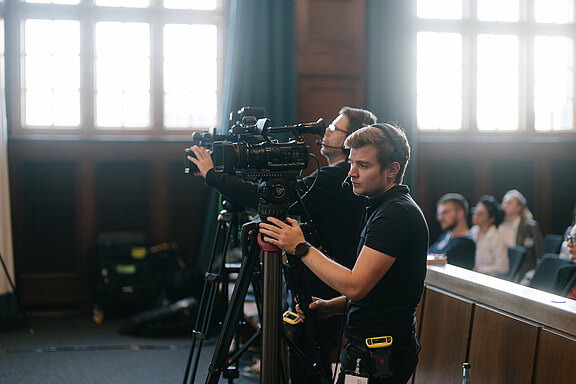Introduction
The International Criminal Court 2002–2020: A Court in Practice
The Nuremberg Academy organised its annual Nuremberg Forum from 13 to 15 October 2022. The conference took place at the historic Courtroom 600 of the Palace of Justice in Nuremberg.
The conference was held on site and virtually through the Nuremberg Forum 2022 online platform, with some chairs and speakers participating remotely. The Nuremberg Forum also utilised Slido, an online questions and answers and polling service, to engage remote participants in the discussion and in expressing their views on a key poll relating to each of the six panels. The Nuremberg Forum received more than 500 online registrations.
Among the participants were the first two Prosecutors of the International Criminal Court (ICC), the current Deputy Prosecutor, the Registrar and President of the ICC, former Presidents of the ICC, the President of the Assembly of States Parties, other ICC professionals, academics, government and civil society representatives. Many of the participants could be characterised as founding parents of the ICC.
The conference opened with welcoming remarks from Tania von Uslar-Gleichen, the new Director of International Law of the Legal Department of the German Federal Foreign Office as well as from Dr Nasser Ahmed, City Councillor, representing the Lord Mayor of the City of Nuremberg. Nuremberg Academy Advisory Council President Navi Pillay also made opening remarks remotely from South Africa.
Ambassador Christian Wenaweser of Liechtenstein, former Prosecutors Luis Moreno-Ocampo and Fatou Bensouda, and former Executive Director of the Women’s Initiatives for Gender Justice Brigid Inder delivered the keynote addresses reflecting on the 20th anniversary of the International Criminal Court.
The objective of the conference was to reflect on the 20th anniversary of the creation of the ICC. Participants considered what had been achieved since the Court’s historic creation in 2002. After 20 years, the ICC and the larger Rome Statute system are seen as an essential part of ending cycles of violence. Significant obstacles however have plagued it in different spheres of its work. Despite the ICC’s potential for global influence, the basic political concerns ingrained in the exercise of its authority frequently confine it. It has become increasingly obvious that the ICC is dependent on State cooperation, particularly when it comes to locating and apprehending suspects.
Similarly, the ICC community more broadly has faced a turning point in their operations and have found their own assumptions challenged: how best can community members support one another? What can be reasonably expected of the ICC and of Rome Statute States Parties? How can we all do better in meeting the needs of victims and in protecting the rights of the defence?
In a series of six panels, the experts sought to answer the following proposition: what does the future hold for the permanent International Criminal Court? And how can its founders help ensure a successful future for the institution they brought into being 20 years ago?
The panel discussions specifically addressed the following subjects: the ICC’s major achievements; complementarity: universal aspirations versus tangible results; goal setting: how deterrent is the ICC in reality; the interconnectedness of justice beyond sentencing: the experiences of victims, witnesses and the accused before the ICC; whose outreach and to whom; and the ICC in the next five, ten and fifteen years.
Participants grappled in particular with the original proposition that the greatest achievement of the ICC was its mere existence and considered what more should be expected of the institution, and what shape it might take in the future. Amongst many lines of inquiry, the following were examined:
- What are the achievements in the ICC set-up and have they helped it function effectively in practice? What are the most pressing changes needed based on the Independent Expert Review (IER) recommendations and how have those been carried out thus far?
- Has the ICC’s objective to prosecute those most responsible for the most serious crimes been met with success?
- What steps has the ICC taken to advance its role with regard to complementarity and what obstacles have been encountered and solutions explored?
- Where can increased coordination improve complementarity in practice and help narrow the impunity gap?
- Is deterrence or prevention the ultimate goal? What has helped to advance the goal of deterrence over the past 20 years and what practice are worth exploring further?
- What goals are central now, particularly to protect the rights of witnesses and victims? How are these balanced against the rights of the defence? What do acquittals mean for the fairness of the original trials and how can these be improved?
- To what end goal should outreach be tied: accountability, the needs of communities and victims, seeking arrests of suspects and other forms of cooperation, capacity building in terms of understanding the ICC and international criminal law or possibly a wider focus including deterrence or prevention? How can more targeted outreach be taken?
- What is the vision of the Court for 2042?
In answering a set of related questions for each panel, the experts reflected on the achievements of the ICC but also its failings, including looking at the 2020 findings of the IER.
The conference’s goal was to provide guidance as to the direction that the ICC and its community might take to render the institution more effective and more attuned to the goals of the Rome Statute Preamble, and to renew the networks that helped achieve the once seemingly impossible goal of creating the ICC in the first place.
The discussion reemphasised that delivering justice remains a complex reality. The Nuremberg Academy encourages all stakeholders to continue to promote collaboration and continued dialogue in search of innovative and proactive changes that will strengthen the system of international criminal justice for the future.
The Nuremberg Academy published the recorded videos on its YouTube channel and will prepare a written conference report in due course. The programme remains available for download.
Downloads








